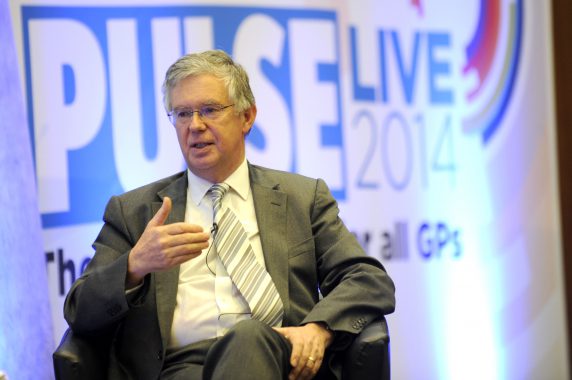Most GPs ‘drowning in work’, says NICE chair

GPs are ‘drowning’ in work and the Government needs to listen to their concerns that patient demand is unsustainable, the chair of NICE has told delegates at Pulse Live.
Taking the stage for an interview with Pulse editor Nigel Praities, Professor David Haslam said most GPs he knew were struggling with their workloads as demand in general practice continued to rise without any additional funding to match it.
Professor Haslam said: ‘I know most of the GPs I meet are struggling, they are drowning in work and the constant never ending demand and the feeling they can never get on top of it.’
He added: ‘We have to find a way of supporting them as well as ensuring GPs get the best quality care.’
Professor Haslam said the narrative on what patients could realistically expect from general practice needed to change and criticised newspapers for voicing patients’ concerns over access without also explaining the pressures GPs are facing.
He said: ‘It drives me absolutely mad when I see newspapers criticising GPs for access issues – which are a real problem for patients without accepting the reason why access is poor is their doctors are already working 12 hours a day and struggling. It’s not that they’re twiddling their thumbs and counting the vast amount of money some newspapers claim they are making.’
But he said this narrative could change with GP leaders such as GPC chair Dr Chaand Nagpaul and RCGP chair Dr Maureen Baker fighting GPs’ corner – and said he believed the health secretary, Jeremy Hunt, also understood the problem.
Professor Haslam added: ‘There is a great need for more [secondary care] generalists working in partnership with GPs in the community.’
‘If we can bring these together we will have far more resources in the right place, but at the moment secondary care sucks up so much – and primary care just gets told, “the secret is to get everything out of hospital into primary care”, while simultaneously the budget just doesn’t match it.’
In an earlier session Professor Haslam told delegates NICE recognised the specific challenges GPs face and was fully committed to making guidance more relevant to their daily practice, managing complex patients.
Professor Haslam said: ‘What I know for certain is taking the NICE guidelines for each [single] condition and adding them together is no way to deliver quality care for that person.’
‘It’s absolutely clear we have to find a way of addressing the whole complex issue of multimorbidity and that’s something NICE is absolutely up for.’
Pulse October survey
Take our July 2025 survey to potentially win £1.000 worth of tokens











